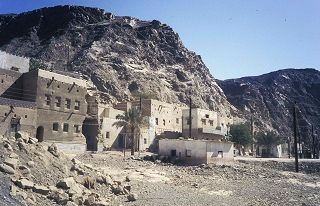Nothing’s Impossible In the Renewable Energy Business Space, But Here’s a Concept That’s Extremely Unlikely

• Electricity costs, because of huge supplies of natural gas—and subsidies on top of that—are $15/MWh (a small fraction of what they are in the U.S.).
• Corruption reigns. Relatives of government officials are getting the nod to build 3 GW in new coal plants, even though there is dubious need, and obvious environmental harm.
• The public has virtually no interest in environmental issues. In the summer, it’s so hot in Oman (49 C = 120 F) and eco-concerns are so low that people leave their cars with their air-conditioners on—even when they’re parked.
I’m an optimistic type of guy, but I’m also a realist. My advice: To be honest, I can’t think of a tougher circumstance in which to introduce renewables. I would just pick another place in the world, and put your attention and hard work there. How to choose? Take a map of the world, and keep throwing darts until you hit land; you won’t be able to do worse than Oman, based on what you’ve told me here.

Corruption is truly a key barrier to progress nearly everywhere across the globe. I firmly believe it’s a primary challenge that people must rise to meet and defeat if human civilization is to expand and evolve. There’s plenty of well understood evidence of that here in the US.
I agree heartily that we should proceed wherever we can, as fast as we’re practically able. That’s the best way to achieve the most widespread and rapid progress.
That said, we won’t get anything like as far as we need to unless we get together and put an end to bribery in all its forms, from revolving door to campaign donation. It’s the central issue that controls all others.
As long as cash reigns as king over us, we’ll be slaves to greed and cowardice.
True. And it’s hard to imagine a world in which cash doesn’t reign king. We can at least get rid of the institutionalized parts of this, e.g., Citizens United. Brown V. Board of Ed. and the U.S. Civil Rights Act didn’t end segregation and discrimination; it just make them illegal, which was an important first step to eliminating them.
Indeed, while the reign of money as chief arbiter of life decisions may long remain, at least we can work to cut the tendrils and tentacles of bribery that now pervade our leadership and governance structures.
I looked at the opportunity for wind power in Oman, and came to a completely different conclusion.
Whilst I recognise that the retail price of electricity is very low, the country explicitly accounts for the subsidy in cash per kWh terms. In actual fact, the cost price of electricity as opposed to the selling price is rather high compared to many countries as in.
Electricity cost A = selling price B + subsidy support C
(All per kWh. C is considerably bigger than B)
If wind or solar power can get a PPA that includes a proportion of that explicit subsidy, then I am sure that either can be more than cost competitive with the costs of conventional generation.
My guess is that the cost price of solar power in Oman would be around $0.05 per kWh, and that of wind power, possibly around $0.03 per kWh in the best areas.
Oman has significant areas with mean wind speeds at hub height of between 9 and 10 m/s, and making use of topography and micro-siting could probably place individual wind turbines where they would receive mean wind speeds between 10 and 12 m/s. What’s more, Oman is not prone to very high wind gusts as would be the case in areas like the US Gulf coast, so could probably use turbines with a larger swept area per MW of rated capacity and so achieve a phenominally high capacity factor.